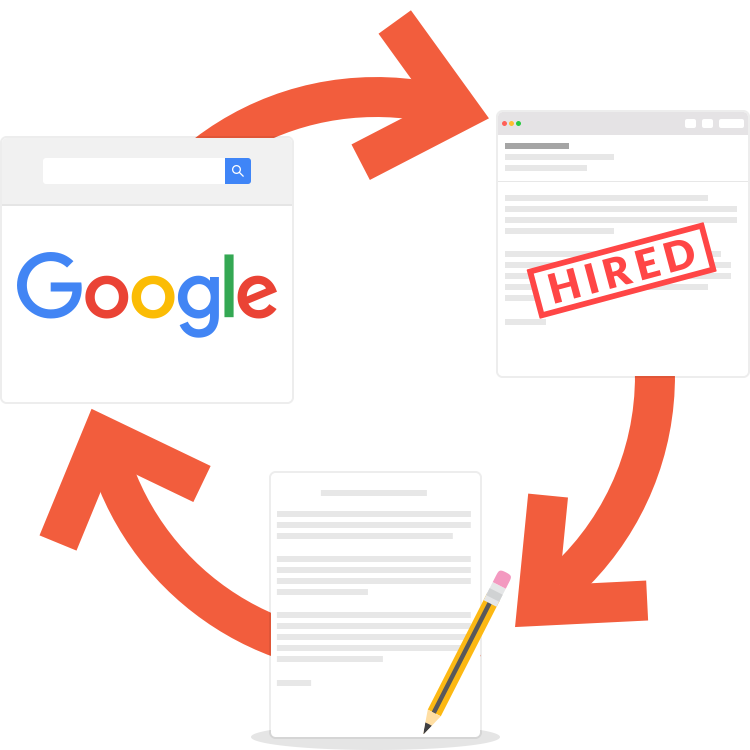
Introduction to Search Engine Optimization (SEO)
<p>Are you familiar with words like bounce rate, backlinks, and SEO? The indexing of your website on search engines might seem like an occult science mastered only by a few specialists. On the contrary, the basis of natural indexing is simple and full of common sense when we know it. We know that you are very busy with your business. We then gathered all the relevant information about your website indexing in this article.</p>
<h3><strong>First, What Is Indexing?</strong></h3>
<p>In short, the indexing is all the efforts you do in order to improve your rank position in search engine results. Thus, the first step to be indexed is <a href="https://www.momenteo.com/blog/5-tips-for-creating-an-awesome-website">to have a website</a>. You might ask why it is so important to be well indexed. The answer is quite simple: if you are well-indexed, your website will be found more easily by potential customers. This can help you increase your sales and visibility. On which result do you click on when you search something on Google? It is likely that you click on the first results which are well-indexed websites.</p>
<p>It is also important to mention that there are two different kinds of indexing: there is the natural indexing, also called SEO, and there is the paid indexing, also called SEA. When you search something on Google, paid indexing are the ads that are located at the top and at the end of the results. Natural indexing results are all the ones that are not ads. We decided to talk about natural indexing in this article.</p>
<h3><strong>Factors That Affect Your Website Indexing</strong></h3>
<p>There are many elements you can control that can help or harm your website indexing on search engines like Google, Bing or Yahoo. First, you need to focus on good and relevant content.</p>
<p><strong>Technical Factors</strong></p>
<p>Let us start at the beginning. You need to tell Google what is the topic of your website. You probably had to choose a domain name when you created your website. It is important to choose a good domain name related to the topic of your website. Try to look for something both short and professional. It is the same thing when you create the pages of your website. Make sure that your pages URLs are relevant to the topic of the page. Moreover, it is also important to have a main title per page. This will help Google to identify the topic and index it correctly.</p>
<p><strong>Content-Related Factors</strong></p>
<p>The content of your website also has an impact on the indexing of your website. As mentioned above, you need to tell Google what the main topics of your website are. One of the ways to do it is to use specific keywords related to your field of activity and at many different places. Try to have between 3 and 6 major keywords which summarize well your business. For instance, you could try words like hairdresser, Toronto, haircut, hair salon and add them on all pages of your website if you own a hair salon in Toronto. Always keep in mind how people do research on Google when you choose your main keywords. This will allow you to be more relevant to search engines. Do not forget to proofread all your website texts too. Spelling and grammar mistakes can harm your indexing but your professionalism too.</p>
<p>Furthermore, the more pages and quality content you have, the more it is easier to be well indexed. In fact, it helps increase the number of searches that can lead to your website. The best way is to have a blog. Besides making you create recent content, it makes a lot of different roads that can bring people to your website. These are called <a href="https://en.webself.net/blog/2019/02/25/what-is-a-backlink" target="_blank">backlinks</a>. Moreover, you should take the time to add links to your website from other websites. For instance, if you have a b&b, you should add a link to your website on websites like Trip Advisor. You should also take the time to complete <a href="https://www.momenteo.com/blog/5-things-you-should-think-about-your-web-marketing" target="_blank">your Google My Business page</a>. This will help you increase your authority and credibility on search engines.</p>
<p><strong>The Bounce Rate and the Average Time Spent on Your Website</strong></p>
<p>We suggest you follow two marketing data that Google and other search engines find very important when indexing your website. First, there is the bounce rate. In summary, the bounce rate is the percentage of people who visited your website without having done any action on your website (visit another page, watch a video, click on a button…) When you have a high bounce rate, it can tell search engines that you are not relevant or trustworthy. The second marketing data we suggest you verify is the average time spent on your website. The more your visitors spend time on your website, the more it says that you have good content. Therefore, try to create links between your website pages and take the time to write relevant texts. This should help you increase both the bounce rate and the average time spent on your website. If you have no idea where you can find these data, you can find them on <a href="https://en.webself.net/blog/2018/12/28/google-analytics-for-beginners-part-1" target="_blank">Google Analytics</a>. </p>
<p></p>
<p>In conclusion, we hope that our article on natural indexing helped you understand the concept better. Keep in mind to make a website with good content that will be liked by your visitors and everything should be all right. If you want to read more on that topic or to work with a pro, we suggest you take a look at our <a href="https://www.momenteo.com/blog/portrait-of-a-freelancer-michel-bouchard" target="_blank">Portrait of a Freelancer article on Michel Bouchard</a>, an SEO specialist!</p>


